HotSpots H2O, April 2: Spotlight on Afghanistan
The Rundown
In Afghanistan, the ties between water and conflict are complex. Years of warfare have upset the water supply of millions. Fighting has damaged infrastructure and driven numerous Afghans from their homes, often to areas where clean water is unavailable. At the same time, climate change is pressuring the country’s resources, and changes in water availability are spurring more conflict.
Acute water shortages affect both urban and rural areas. Kabul, the capital, is undergoing a population influx as Afghans who fled during past fighting return home. Many of the returnees live in informal settlements, where access to water and sanitation is limited. In addition, the city’s growth is gradually depleting groundwater reserves.
In rural areas, shifting weather patterns influence water supply. The Hindu Kush mountain range has long been Afghanistan’s main source of water, but melting glaciers and erratic rainfall are altering the region’s water availability. The decline in resources has led to an increase in local disputes over water.
“People are surviving. [But] their ability to bounce back is almost zilch.” –Andrew Scanlon, a country director for the UN Environment Programme (UNEP), in reference to Afghan farmers who grapple with irregular snowmelt. Across the country, farmers agree that temperatures have risen and rains have become more unpredictable in recent decades.
By The Numbers
80 percent Proportion of conflicts in Afghanistan that are related to resources like land or water, according to UNEP.
45 percent Proportion of Afghans who are using unimproved water sources.
68 percent Proportion of Afghans who do not have access to improved sanitation.
1.5 meters Average amount that groundwater levels in Kabul declined each year between 2008 and 2012, according to the U.S. Geological Survey.
26 percent Proportion of Afghans in Kabul province who listed access to drinking water as their biggest problem in The Asia Foundation’s recent Survey of the Afghan People.
Science, Studies, and Reports
A 2016 report by the UN Assistance Mission in Afghanistan (UNAMA) claims that settling water disputes is a key factor in peacebuilding and economic growth in Afghanistan. According to the report, the demand for water to support agricultural development often leads to high-stakes water disputes. The report offers several suggestions for mitigating conflict, such as changes to dispute resolution and better implementation of the country’s Water Law.
On The Radar
Currently, Afghanistan is experiencing 70 percent less rainfall than the same period last year, deepening the country’s water scarcity. In the long-term, scientists predict that temperatures will continue to rise, further threatening Afghanistan’s glaciers. The future of water in Kabul is raising concerns as well. Kabul’s existing groundwater supply is only enough to sustain a population of five million–a number the city is fast approaching. By the end of the century, Kabul’s population could be as high as 50 million.
High in the Hindu Kush mountains, another water dispute is also developing. Construction is underway on the Kamal Khan dam, which Afghanistan is building on the Helmand river. The purpose of the dam is to improve water and electricity access in Afghanistan. The project, though, has drawn ire from neighboring Iran, who claims it will alter water flow and damage the environment. The contentious dam is expected to be complete within four years.
Resources and Further Reading
2018 Humanitarian Needs Overview (UN OCHA)
Afghanistan: UN report finds settling water disputes key to economic growth, avoiding conflict (UN News)
Afghanistan faces severe clean water shortage (Al Jazeera)
As Kabul Grows, Clean Water a Step Toward State Legitimacy in Afghanistan (The Asia Foundation)
Groundwater-level trends and implications for sustainable water use in the Kabul Basin (U.S. Geological Survey)
Dam project promises water – but also conflict – for dusty Afghan border lands (The Guardian)
ECHO Factsheet – Afghanistan – March 2018 (Relief Web)
How climate change is a ‘death sentence’ in Afghanistan’s highlands (The Guardian)
Pressure builds in ‘powderkeg’ Kabul as refugees return home (The Guardian)
War Of Words Heats Up Between Iran And Afghanistan Over Water Resources (Forbes)
Kayla Ritter is a recent graduate of Michigan State University, where she studied International Relations and Teaching English to Speakers of Other Languages. She is currently based in Manton, Michigan. Kayla enjoys running, writing, and traveling. Contact Kayla Ritter

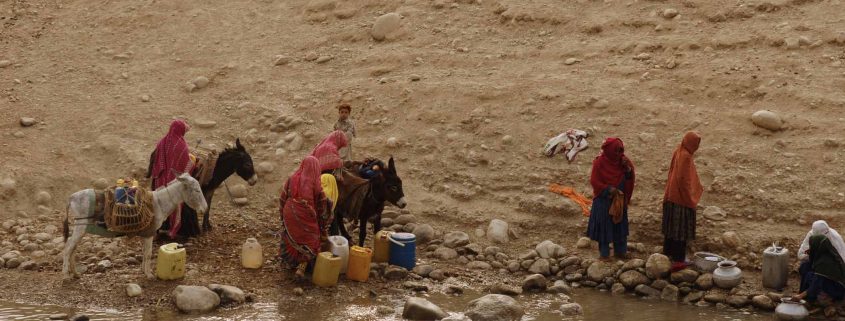

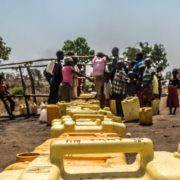
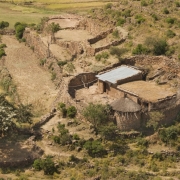
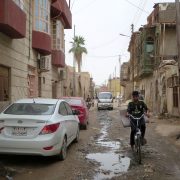
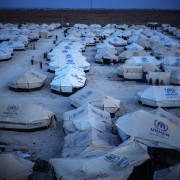
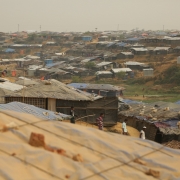

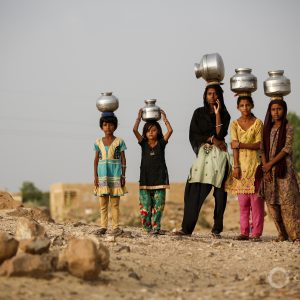

Leave a Reply
Want to join the discussion?Feel free to contribute!